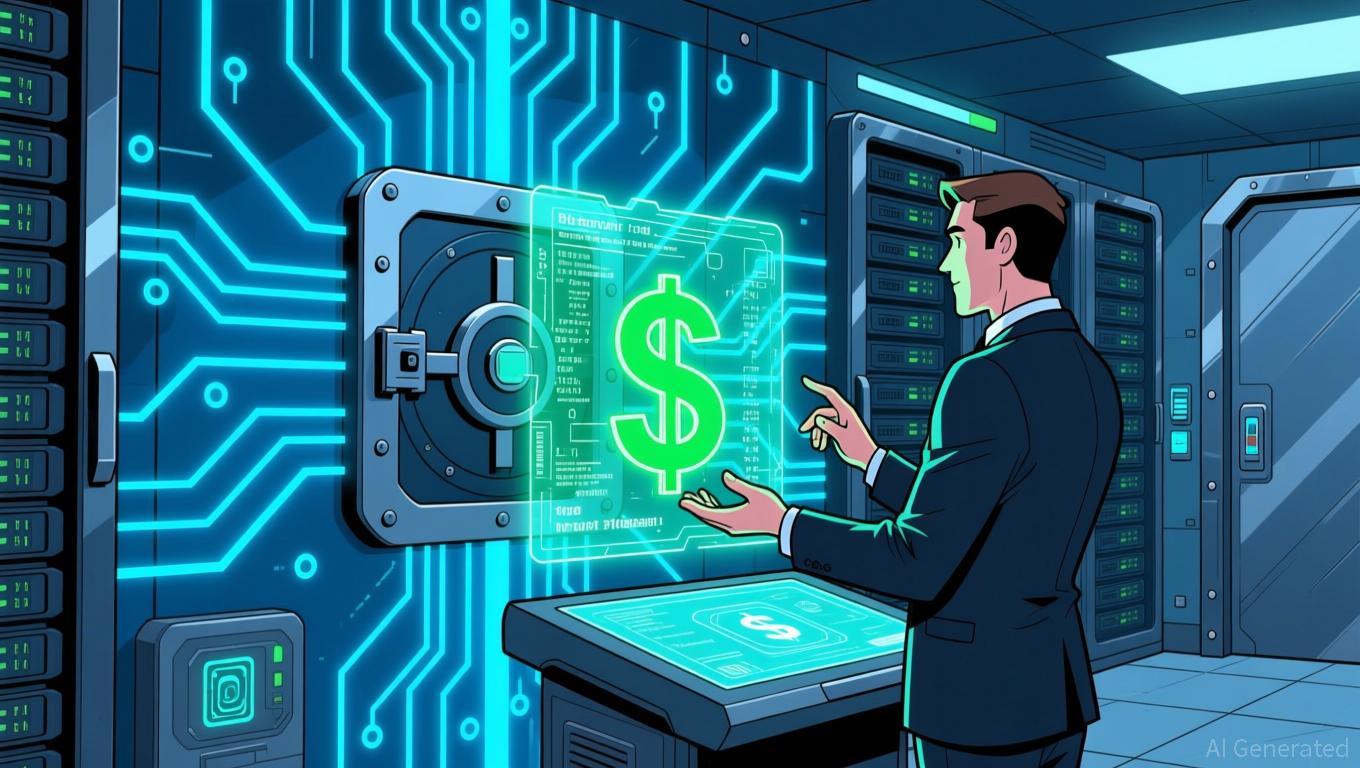Stablecoin Charter Dispute Highlights Oversight Shortcomings in Digital Banking
- ICBA opposes Sony Bank's U.S. trust charter bid, warning its stablecoin venture could bypass traditional banking safeguards and regulatory frameworks. - Critics argue Connectia's dollar-pegged stablecoins mimic deposits without CRA/FDIC compliance, creating an uneven playing field for insured banks. - Over 30 crypto firms including Coinbase seek similar charters, sparking regulatory debates about innovation risks versus financial stability. - JPMorgan upgrades stablecoin stocks while ICBA highlights OCC'
The Independent Community Bankers of America (ICBA), a prominent supporter of community banks, has intensified its resistance to
The ICBA’s objections focus on the risk that Connectia could replicate the functions of bank deposits without complying with the Community Reinvestment Act (CRA) or FDIC standards. Sony Bank’s submission, made in October, proposes the creation of a trust to issue stablecoins redeemable one-for-one with U.S. dollars, facilitate digital payments, and provide custody solutions.

The resistance to Sony mirrors a wider regulatory examination of crypto companies seeking federal charters. More than 30 organizations, such as Coinbase, Circle, and Ripple, have submitted similar applications since the GENIUS Act broadened access to the stablecoin market in July,
The OCC is now faced with a challenging choice. The ICBA
Meanwhile, analysts at JPMorgan have expressed optimism about stablecoin companies, upgrading Circle’s rating to “Overweight” and highlighting strong momentum in
This ongoing discussion highlights the broader challenge of how to define and oversee stablecoins, which exist at the intersection of traditional banking and decentralized finance. Supporters claim they deliver greater transparency and efficiency, while critics worry about potential systemic dangers if left unchecked. The OCC’s ruling on Sony’s application may set a benchmark for future crypto bank charters, shaping whether the U.S. adopts a more open or restrictive stance toward digital financial services.
Disclaimer: The content of this article solely reflects the author's opinion and does not represent the platform in any capacity. This article is not intended to serve as a reference for making investment decisions.
You may also like
Bitcoin Updates: Saylor's Fiery Voyage: MicroStrategy Remains Committed to Bitcoin Amid Growing Market Strain
- MicroStrategy's Michael Saylor denies selling 47,000 BTC amid rumors, reaffirming the company's commitment to aggressive BTC accumulation. - Analysts project 6,720 BTC additions via STRE issuance, targeting 27% BTC yield and a $141k BTC price by year-end. - Market skepticism grows as MicroStrategy's stock drops 35% YTD, trading below NAV amid mNAV ratio concerns and short-seller warnings. - New entrants like BSTR and Reitar Logtech expand BTC treasury strategies, signaling broader institutional adoption

Ethereum Latest Updates: BitMine Invests $12.5 Billion in Ethereum, CEO Predicts a Repeat of the 1990s Internet Surge
- BitMine appoints Chi Tsang as CEO and adds three board members to accelerate Ethereum holdings expansion. - The firm increased ETH purchases by 34% last week, holding 3.5M ETH ($12.5B) despite price drops. - Tsang compares Ethereum's growth to the 1990s internet boom, aiming to bridge traditional and crypto markets. - Regulatory compliance and market skepticism follow the leadership change, with BMNR down 4.7% premarket.

Public's $65 Million CryptoIRA Initiative Reflects Surging Interest in Tax-Beneficial Crypto Retirement Options
- Public acquires Alto's CryptoIRA business for $65M to enable IRA crypto trading by early 2026. - Acquisition expands retirement crypto options amid rising retail demand and evolving regulations. - Existing Alto customers retain platform access until integration, with seamless transition planned. - Alto shifts to custodial role under CaaS model, while Public handles trading functionality. - Move reflects crypto fintech consolidation and growing investor interest in tax-advantaged digital assets.

ZEC Jumps 6.68% Following Winklevoss-Supported Treasury Approach
- Zcash (ZEC) surged 6.68% in 24 hours to $548.91 on Nov. 14, 2025, despite a 9.98% weekly decline. - Winklevoss-backed Cypherpunk Technologies rebranded from a biotech firm to a ZEC-focused treasury strategy, acquiring 1.25% of total ZEC supply. - The firm aims to hold 5% of ZEC supply (800,000 tokens) as a privacy hedge, supported by $58.9M in funding and a $200M equity facility. - ZEC's 37.03% monthly gain and 885.34% annual rise reflect growing demand for privacy-centric assets, with Network Upgrade 6.